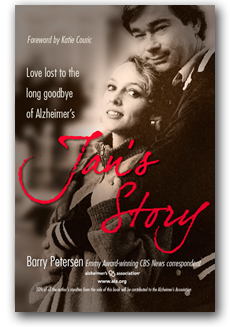Posts Tagged ‘Alzheimer’s Disease’
Transparent and Still Mine: highly recommended
 I’m always hungry for films that portray aging and relationships insightfully, teaching me something new and unexpected.
I’m always hungry for films that portray aging and relationships insightfully, teaching me something new and unexpected.
Amazon Prime jolted me recently with two stellar offerings — one series and one film — that feature aging characters who don’t fit any of the stereotypes. Both affected me profoundly, and I recommend them to you:
Transparent
 At 68, Mort (played masterfully by Jeffrey Tambor) comes out as a trans woman who wants to be called Maura. In this sweet, smart, and strongly acted ensemble series, we see the strengths and vulnerabilities of Mort/Maura and a family of ex-wife and three adult children — who make a ton of relationship mistakes of their own.
At 68, Mort (played masterfully by Jeffrey Tambor) comes out as a trans woman who wants to be called Maura. In this sweet, smart, and strongly acted ensemble series, we see the strengths and vulnerabilities of Mort/Maura and a family of ex-wife and three adult children — who make a ton of relationship mistakes of their own.
This 10-episode series resolves many questions and leaves enough unanswered to allow for a second season, which is in the works — hurray!
Yes, there’s lots of sex in Transparent, but (boo) only Maura’s children are having it. Maura is more interested in establishing her identity and being accepted by her family than in having sex with anyone — at least in season 1. Will this change in the second season?
Still Mine
 Craig (James Cromwell) is watching Irene (Geneviève Bujold), his wife of 61 years, lose her memory. He loves her fiercely and wants to protect her by building a house that will be easier for her to live in.
Craig (James Cromwell) is watching Irene (Geneviève Bujold), his wife of 61 years, lose her memory. He loves her fiercely and wants to protect her by building a house that will be easier for her to live in.
Although Craig has been building houses his whole life, he’s no match for the bureaucracy that insists on permits and strict adherence to building codes that are irrelevant to Craig (the plans are in his head; the lumber came from a tree he felled; the knowledge came from his father and a lifetime of craftsmanship and self-sufficiency).
The love and chemistry between Craig and Irene are powerful. The tenderness in their loving looks and caresses will make you applaud or cry or both. And rather than portray this elderly couple as sexless, there’s a sexy undressing scene early in the film that includes, “This never gets old. We always did passion well.”
This film is based on real people and actual events. Don’t miss it.
What films have you watched that portrayed aging and relationships in a non-stereotypical way? I look forward to your recommendations.
Intimacy, Sexuality and Dementia by Peggy Brick
 One of my favorite sex educators, Peggy Brick, a true ground-breaker in the sexuality and aging field, has turned her remarkable talents to teaching about dementia. I invited her to guest blog about this urgent topic. As always, I invite your comments. — Joan
One of my favorite sex educators, Peggy Brick, a true ground-breaker in the sexuality and aging field, has turned her remarkable talents to teaching about dementia. I invited her to guest blog about this urgent topic. As always, I invite your comments. — JoanIntimacy, Sexuality and Dementia
What does it mean, “We’re sexual from birth to death,” when faced with the growing specter of dementia? Will the nation acknowledge that over five million of its citizens with Alzheimer’s and other dementias have intimacy needs and rights? Will families, friends, professional caregivers, and institutions respect the sexuality needs and rights of individuals who are increasingly unable to care for themselves or respond to others in conventional ways? Will they learn how to connect by listening, touching, hugging, respecting, and loving the person who remains?
1. Dementia is part of today’s reality: if you’re lucky enough to live to be 85, there’s a 50 percent chance you will experience dementia. Now is the time to become an advocate for more research, education, care services, and progressive public policies.
2. Since currently there’s no cure for Alzheimer’s, do your best to prevent or delay it by promoting brain health through regular exercise, a heart-healthy diet, social connections, and brain-stimulating activities.
3. If you’re concerned about someone’s memory, get it checked — first by a primary physician, and then a psycho neurologist. Early diagnosis is key to getting support and planning for a future living with inevitable diminishments. Later, making choices becomes impossible.
4. Read books and view films to understand the experience of dementia. People diagnosed with Early Alzheimer’s have written powerful stories about their feelings and their relationships. Richard Taylor, author of “From the Inside Out” created a powerful DVD challenging the stigma. Many caregivers have revealed their struggles and survival techniques.
5. Stay connected with a person with dementia by meeting them where they are. Learn either the “Best Friends” or the “Validation Therapy” approach that dementia care programs use to help caregivers accept the person’s reality in ways that reduce anxiety and encourage communication.
6. Recognize that dementia profoundly affects partner relationships. A well spouse often experiences decreased attraction after assuming caretaking duties such as bathing and toileting. As the disease progresses, people may no longer recognize their partner or believe they’re someone else.
7. Sexual expression is especially important in a nursing home when physical contact may be a beneficial means of communication, serving to calm and reassure. Ask whether a home you are considering has a sexuality policy that documents residents’ sexual rights, adequate staff training, and abuse prevention strategies.
8. Most caregivers experience loss and grief as they interact with someone who is both there and not there. Unlike a death that is final, this loss continues, often for years, and is difficult and exhausting. You must take care of yourself, which is challenging – but essential — when you who love and care for someone with dementia.
 – Peggy Brick, M.Ed., teaches “Alzheimer’s: New Perspectives” at Osher Lifelong Learning Institute, University of Delaware, and is the founder of the Sexuality and Aging Consortium at Widener University.
– Peggy Brick, M.Ed., teaches “Alzheimer’s: New Perspectives” at Osher Lifelong Learning Institute, University of Delaware, and is the founder of the Sexuality and Aging Consortium at Widener University.
Reader: “Replacement girlfriend? Since when are wives disposable?”
I am one of the sex educators who answers question sent to the Safer Sex for Seniors website. I just answered this one and wanted to share it with you, too. It’s an issue that either has or will come up for us, unfortunately:
I’m 74 and my wife is 78. She is a resident of a care center while her hip heals from being broken and I’m still at home. She also has dementia! I’m being advised to put her into a senior home for the balance of her life and go find a replacement girlfriend.
My question is: Now that I’m at this age I’ve lost or forgotten how to find an acceptable date. My friends and family think it’s outrageous for me to replace my wife. But our state case manager is strongly backing the suggestion for a new girl in my life. Since when are wives disposable — except until death do us part?
Joan Price answers:
This is a sad and scary time for you, I understand. Your wife is badly injured and suffering from dementia, and others are advising you to let her stay in a residential facility where she can be taken care of – not temporarily, but for the rest of her life. I can understand how upset you must feel. This isn’t what you and your wife thought your golden years would be.
If you’re asking whether you should start dating, only you know whether that’s the right step for you. No one is suggesting that your wife is disposable, though they may sound that way to you in your grief.
I think those who are advising you to date are trying to let you know gently that your wife will not be returning to your home or to your relationship, and when it feels right to you to find companionship, it’s okay to do that. They’re not encouraging you to “dispose” of your wife or your vows. They’re trying to look out for your emotional well-being by letting you know that if you do want to explore finding a new relationship now or in the future, there’s nothing wrong with that.
I can see from the way you state your question, though, that it’s probably too soon to take that suggestion. Perhaps better right now would be a grief support group. Although your wife has not died, you have lost her companionship and even her presence in your life. A grief counselor or support group could be immensely valuable to you.
When you’re ready, you don’t need to feel guilty about your own need to be close to another person emotionally and sexually– that’s natural and a part of being human. You would not be trying to “replace” your wife in any way, just taking care of your own social and intimate needs. You may need to explain that to your family (or let them read this) if they still think it’s “outrageous” that you might look for a relationship.
I wish you the best. I know this is the hardest of times.
[Originally published at http://safersex4seniors.org/are-partners-with-dementia-disposable/.]
Jan’s Story: Love Lost to the Long Goodbye of Alzheimer’s by Barry Petersen, reviewed
Jan’s Story: Love Lost to the Long Goodbye of Alzheimer’s by Emmy Award-winning CBS News Correspondent Barry Petersen is a stunning, wrenching, valuable book about loving and living with a spouse with Alzheimer’s Disease. Petersen writes from his heart, his gut, his personal truth as a loving husband who watches his wife disappear and is powerless to change the course of her disease.
View the trailer here. And please read the book, whether or not you have a spouse with Alzheimer’s disease. Barry and Jan never expected that this disease would invade and obliterate their marriage–but as we age, it’s likely that it will happen to us or to someone we love, and we should know what Barry learned the hard way. Highest recommendations.

